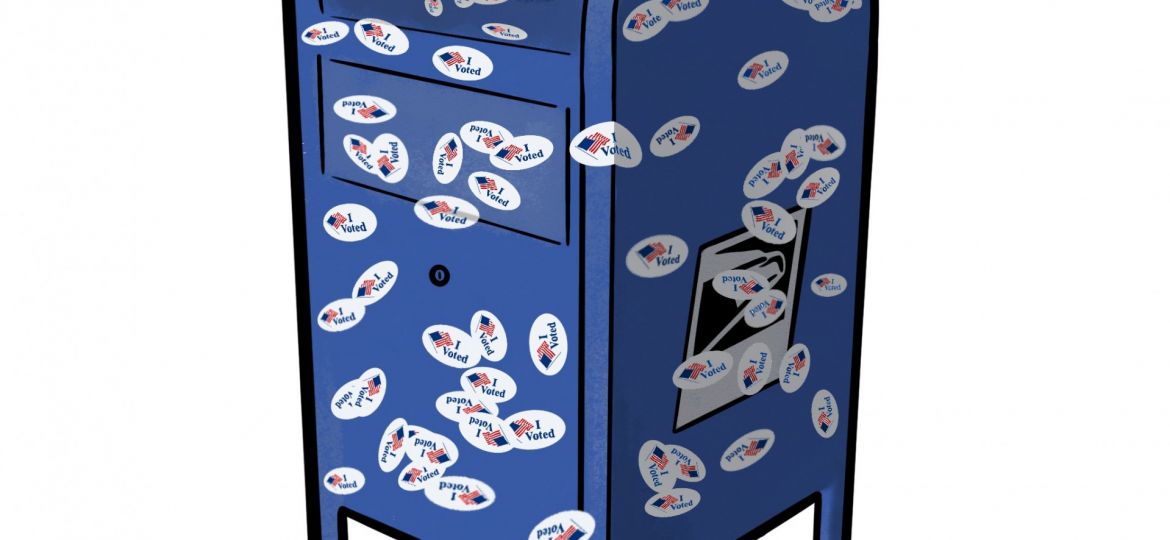
In a time when the stability of a pandemic-inflicted world hangs in a gentle balance, the beloved United States Postal Service (USPS) is facing dangerous consequences after many years of financial loss. In an effort to reduce costs, post offices across the country were directed to remove mail sorting machines, reduce requests for overtime and cut post office hours. Cuts like these have led to a gradual slowdown of the mail delivery service.
This outcome is concerning, as countless citizens depend on reliable mail service to deliver medication, paychecks and other important documents in a timely fashion. However, even more concerning is the reduced ability for the USPS to process and deliver the expected 80 million mail-in ballots for the upcoming presidential election—more than double that of the 2016 election.
Mail sorting machines have been removed across the country, notably in states such as Wisconsin, Ohio, Florida and Michigan, all immediately recognizable as important swing states. Directed by Postmaster Louis DeJoy, who donated more than one million dollars to President Donald Trump’s reelection campaign, these changes have been justified under the guise of reducing the deficit with which the Postal Service operates. Coincidentally, Trump has continuously spouted unsupported claims that mail-in voting encourages fraud, and he even went so far as to publicly declare on Fox News that the changes in the USPS were a good step to discourage voters from casting their ballots through the mail.
As safety concerns over in-person voting mount due to the COVID-19 pandemic, Americans are having to choose between their democratic right to vote and their personal safety. However, it does not need to be this way. Mail-in voting has proven to be a safe and effective way for voters to cast their ballots, and many states such as Colorado, Utah and Washington automatically send mail-in ballots to every citizen, regardless of absentee status. Elections in these states have proven no less legitimate than in-person voting.
Analysis by New York University’s Brennan Center for Justice has shown that it is more likely that a voter would be struck by lightning than participate in voter fraud. With an increased percentage of voter participation, elections become more representative of the true beliefs of citizens, a goal that should be encouraged across party lines. To condemn the safety and effectiveness of mail-in voting is a dangerous practice that will alienate voters who value their personal health and safety over a trip to the polling place. In a highly contested election such as this, government leaders should be encouraging and embracing voters to participate, regardless of if they can show up in person or not.
While the financial losses of the Postal Service are an important issue to address, the cost-saving measures implemented by DeJoy have intersected dangerously with an election that will lean on the USPS more than any before. Mail-in voting should operate as an extension of the democratic duty to vote granted to every United States citizen, not as a partisan issue.
Instead of casting doubt and creating barriers for voters who want to participate in a representative democracy, leaders of both parties need to come together and encourage participation, by mail and in-person. Additionally, legislation and support must be enacted to enable the United States Postal Service to safely and securely handle an influx of absentee ballots. Cost-cutting measures can wait—the integrity of our elective process cannot.
Claire Boldt ’22 is from Appleton, WI. Her major is political science.

